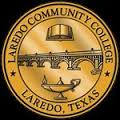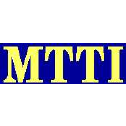What do they do?
Repair, maintain, or install computers, word processing systems, automated teller machines, and electronic office machines, such as duplicating and fax machines.
Also known as:
ATM Technician (Automated Teller Machine Technician), Computer Repair Technician, Computer Technician, Copier Technician, Customer Service Engineer, Field Engineer, Field Service Engineer, Field Service Technician, Field Technician, Printer Repair Technician, Service Technician
-
-2.8%
Change
Ranks #47 in job growth rate200Job Openings
Ranks #19 in net job growth
Colleges with the most graduates that become Computer, Automated Teller, and Office Machine Repairers
Looking for colleges that offer a specific major? Use the College Match Tool to find your best-matched schools and discover your estimated Net Price!
- Some college, no degree (31%)
- Bachelor's degree (22%)
- Associate's degree (21%)
- High school diploma equivalent (19%)
- Master's degree (4%)
- Less than high school diploma (2%)
- Doctorate or Professional Degree (1%)
People in this career often have these skills:
- Active Listening - Giving full attention to what other people are saying, taking time to understand the points being made, asking questions as appropriate, and not interrupting at inappropriate times.
- Repairing - Repairing machines or systems using the needed tools.
- Critical Thinking - Using logic and reasoning to identify the strengths and weaknesses of alternative solutions, conclusions, or approaches to problems.
- Complex Problem Solving - Identifying complex problems and reviewing related information to develop and evaluate options and implement solutions.
- Troubleshooting - Determining causes of operating errors and deciding what to do about it.
People in this career often know a lot about:
- Computers and Electronics - Knowledge of circuit boards, processors, chips, electronic equipment, and computer hardware and software, including applications and programming.
- Customer and Personal Service - Knowledge of principles and processes for providing customer and personal services. This includes customer needs assessment, meeting quality standards for services, and evaluation of customer satisfaction.
- Mechanical - Knowledge of machines and tools, including their designs, uses, repair, and maintenance.
People in this career often have talent in:
- Near Vision - The ability to see details at close range (within a few feet of the observer).
- Oral Comprehension - The ability to listen to and understand information and ideas presented through spoken words and sentences.
- Oral Expression - The ability to communicate information and ideas in speaking so others will understand.
- Problem Sensitivity - The ability to tell when something is wrong or is likely to go wrong. It does not involve solving the problem, only recognizing that there is a problem.
- Written Comprehension - The ability to read and understand information and ideas presented in writing.
- Finger Dexterity - The ability to make precisely coordinated movements of the fingers of one or both hands to grasp, manipulate, or assemble very small objects.
- Speech Recognition - The ability to identify and understand the speech of another person.
- Speech Clarity - The ability to speak clearly so others can understand you.
- Information Ordering - The ability to arrange things or actions in a certain order or pattern according to a specific rule or set of rules (e.g., patterns of numbers, letters, words, pictures, mathematical operations).
- Visualization - The ability to imagine how something will look after it is moved around or when its parts are moved or rearranged.
People in this career often do these activities:
- Reassemble equipment after repair.
- Confer with customers or users to assess problems.
- Disassemble equipment to inspect for deficiencies.
- Train customers in the use of products.
- Calibrate equipment to specifications.
- Align equipment or machinery.
- Adjust equipment to ensure optimal performance.
- Replace worn, damaged, or defective mechanical parts.
- Repair worn, damaged, or defective mechanical parts.
- Travel to work sites to perform installation, repair or maintenance work.
- Maintain inventories of materials, equipment, or products.
- Order materials, supplies, or equipment.
- Test mechanical equipment to ensure proper functioning.
- Install programs onto computer or computer-controlled equipment.
- Clean equipment, parts, or tools to repair or maintain them in good working order.
- Lubricate equipment to allow proper functioning.
- Maintain repair or maintenance records.
- Test mechanical systems to ensure proper functioning.
- Document operational activities.
- Analyze test or performance data to assess equipment operation.
- Read technical information needed to perform maintenance or repairs.
- Install electrical components, equipment, or systems.
- Test electrical circuits or components for proper functioning.
- Assemble mechanical components or machine parts.
- Lay cables to connect equipment.
- Connect electrical components or equipment.
- Enter codes or other information into computers.
- Maintain work equipment or machinery.
- Train others in operational procedures.
This page includes data from:

 Occupation statistics: USDOL U.S. Bureau of Labor Statistics Occupational Employment Statistics
Occupation statistics: USDOL U.S. Bureau of Labor Statistics Occupational Employment Statistics













